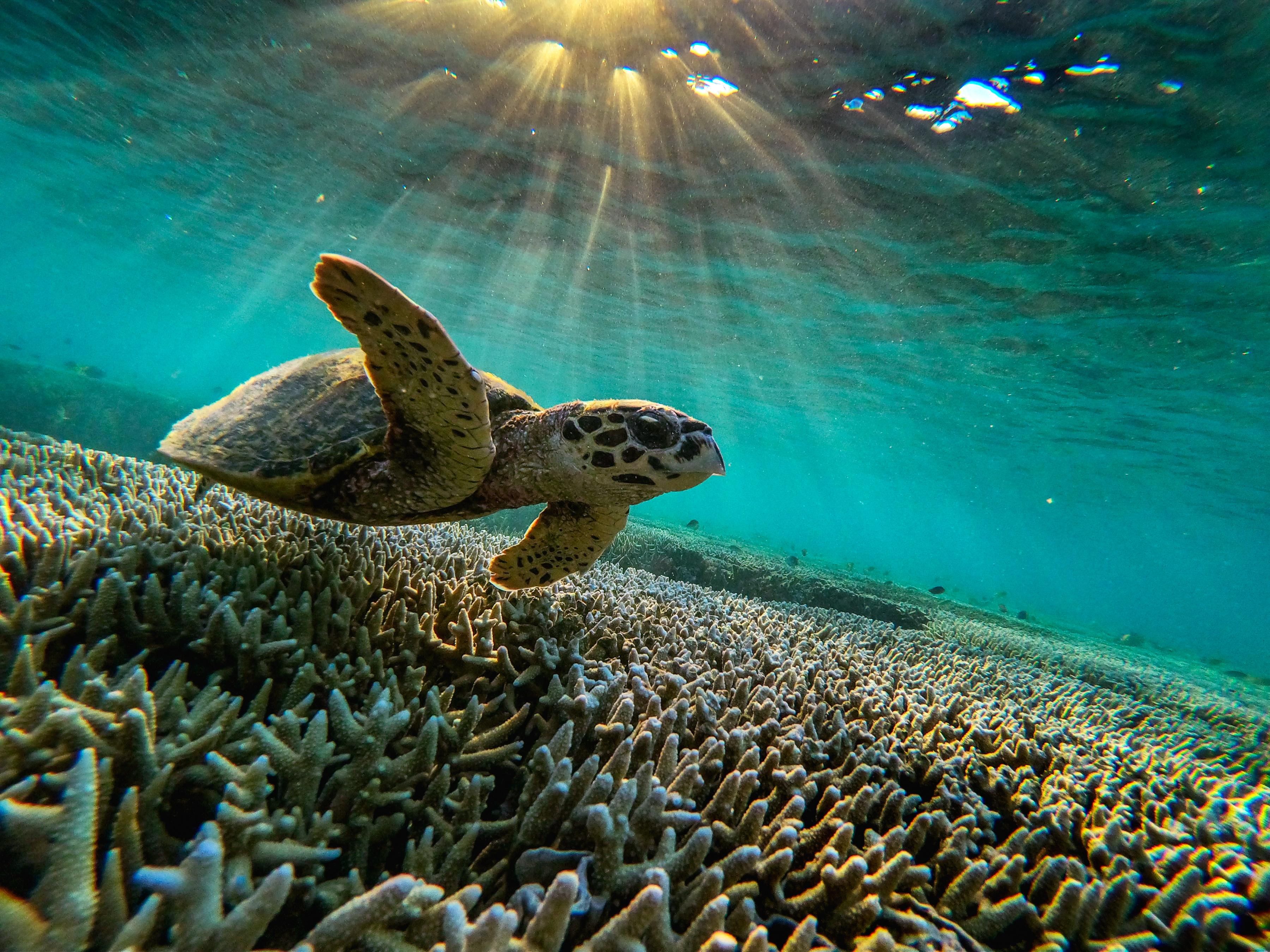
A fledgling international effort to protect the world's oceans from further damage is "on the brink of failure," and the governments of wealthy countries are primarily to blame, Greenpeace International warned Thursday.
"Failure at these talks will jeopardize the livelihoods and food security of billions."
Diplomats gathered at the United Nations headquarters in New York City are nearing the end of the fifth and final round of negotiations on a much-needed pact to protect biodiversity in the "high seas"—a global commons comprising the two-thirds of the ocean that lie outside the jurisdiction of any single country and where legally binding regulations are virtually nonexistent.
Conservationists have long hoped that the ongoing summit—described by some as the "last chance" to forge a robust global ocean treaty—would lead to the establishment of "Marine Protected Areas" and rules mandating environmental assessments prior to deep-sea mining and other industrial activities.
But a handful of mostly rich countries—including the United States, Canada, and members of the so-called High Ambition Coalition on Biodiversity Beyond National Jurisdiction—have derailed progress made on the text by prioritizing "hypothetical future profits" that could be derived from extracting marine genetic resources over protecting aquatic species, according to Greenpeace.
"The oceans sustain all life on Earth, but the greed of a few countries means this round of talks for a U.N. ocean treaty are now set to fail," Laura Meller of Greenpeace's Protect the Oceans campaign said Thursday in a statement. "The High Ambition Coalition has utterly failed. They should be the No Ambition Coalition."
Members of the coalition have "obsessed over their hypothetical future profits, undermining all the other progress made at these talks," said Meller. "Unless ministers urgently pick up the phone today to their counterparts and hammer out a deal, this treaty process will fail."
The health of the world's oceans, which cover roughly 70% of the Earth and are indispensible to life on the planet, has been rapidly deteriorating as a result of unmitigated greenhouse gas emissions, surging plastic pollution, and overexploitation.
The high ambition coalition pledged earlier this year to finalize a treaty in 2022 that would protect 30% of the world's oceans by 2030, but the proposed text is "lowering its ambition by the minute," said Greenpeace.
"Less than two months ago I was in Lisbon, at the U.N. Ocean Conference, listening to these leaders promise they would deliver a strong global ocean treaty this year," said Meller. "Now we are in New York and the leaders are nowhere to be found. They've broken their promises."
"We are sad and angry," Meller continued. "Billions of people rely on healthy oceans, and world leaders have failed all of them."
"It now looks like protecting 30% of the world's oceans [by 2030] will be impossible," she added. "Scientists say this is the absolute minimum necessary to protect the oceans, and failure at these talks will jeopardize the livelihoods and food security of billions. We're beyond disappointed."
Greenpeace also accused rich nations of taking "an unfair and neocolonial approach by refusing to commit any finance for the benefit of all countries."
The refusal of the U.S., Canada, and others to provide funding "will stop a treaty from being agreed here," the group added. "With talks set to fail, countries must now take urgent action, show flexibility, and find compromise to deliver a strong treaty text" by Friday.
This content originally appeared on Common Dreams - Breaking News & Views for the Progressive Community and was authored by Kenny Stancil.
Kenny Stancil | Radio Free (2022-08-25T17:27:40+00:00) UN Ocean Treaty Talks on Verge of Collapse Due to Rich Nations’ Greed, Greenpeace Warns. Retrieved from https://www.radiofree.org/2022/08/25/un-ocean-treaty-talks-on-verge-of-collapse-due-to-rich-nations-greed-greenpeace-warns/
Please log in to upload a file.
There are no updates yet.
Click the Upload button above to add an update.